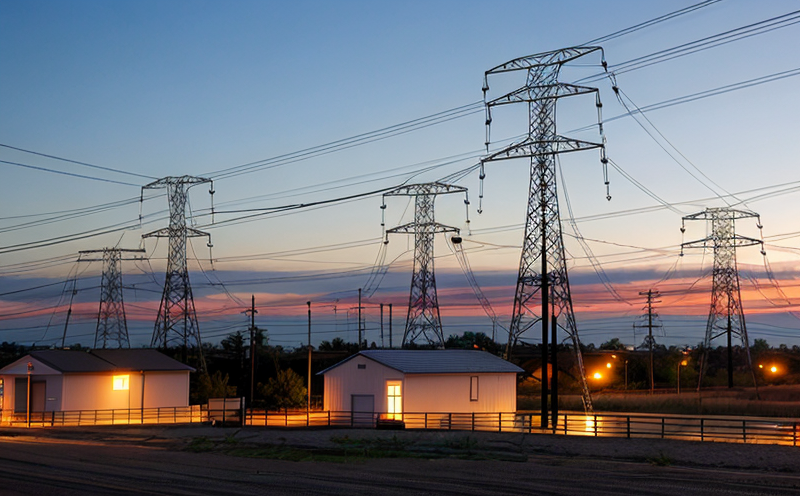IEEE 80 Grounding System Reliability Testing for Grid Safety
The IEEE Standard 80-2017 provides a framework for ensuring reliable grounding systems in electrical power distribution networks. This standard is critical for minimizing risks associated with ground faults, which can lead to equipment damage, personnel injury, and even fatalities. Ensuring compliance with this standard not only enhances grid safety but also supports regulatory requirements and operational efficiency.
The IEEE 80 process involves a series of tests designed to evaluate the performance characteristics of grounding systems under various conditions that mimic real-world scenarios. These tests are essential for identifying potential vulnerabilities in the system, allowing for timely corrective actions. The testing methodology includes both theoretical analysis and practical field measurement techniques.
The primary objective is to establish a robust grounding network that can safely dissipate fault currents without causing hazards to personnel or equipment. This involves multiple steps such as site evaluation, installation verification, periodic inspection, and performance evaluation through various tests prescribed in the standard.
One of the key aspects of IEEE 80 testing is its emphasis on continuous monitoring using advanced instrumentation capable of detecting minute changes in ground resistance over time. This capability ensures that any deviations from acceptable limits are promptly addressed before they escalate into larger issues. Additionally, this test procedure includes validation checks for newly installed components as well as ongoing assessment of existing infrastructure.
Another critical component of IEEE 80 testing is the evaluation of lightning protection systems integrated within the grounding network. Lightning strikes pose a significant threat to electrical installations and personnel alike; thus, ensuring adequate protection measures through rigorous testing aligns perfectly with the goals set forth by this standard.
In summary, implementing IEEE 80-2017 ensures that power distribution networks operate safely and efficiently while reducing risks associated with ground faults. By adhering to these stringent guidelines, utilities can build confidence in their infrastructure's reliability, ultimately leading to improved service quality and customer satisfaction.
Benefits
- Enhanced safety for personnel working on or near electrical equipment.
- Reduction of risk due to ground fault incidents that could result in injuries or fatalities.
- Increased reliability and availability of the power distribution network by minimizing downtime caused by failures related to grounding issues.
- Potential cost savings through early identification and rectification of problems before they become more severe, thus avoiding expensive repairs later on.
Customer Impact and Satisfaction
Compliance with IEEE Standard 80-2017 significantly contributes to enhancing customer trust by demonstrating a commitment to high standards of safety and quality. Utilities that implement these practices effectively communicate their dedication to protecting both employees and consumers, fostering long-term relationships based on reliability and dependability.
Clients benefit from improved service levels as well as reduced risk exposure associated with electrical hazards. This translates into greater overall satisfaction among stakeholders who rely on dependable power supply services. Moreover, adherence to such rigorous testing protocols positions companies at the forefront of best practices within the industry, setting benchmarks for others to follow.
Competitive Advantage and Market Impact
In today’s competitive market environment, maintaining and demonstrating compliance with recognized standards like IEEE Standard 80-2017 can be a decisive factor in gaining competitive advantage. By investing in thorough grounding system reliability testing, organizations not only meet regulatory expectations but also position themselves as leaders in operational excellence.
Compliance with these guidelines enhances the reputation of the utility provider among customers and stakeholders alike. It signals to potential investors that the company operates within a framework of stringent quality control measures, thereby attracting capital needed for further growth opportunities. Furthermore, it helps attract top talent seeking employment at firms committed to excellence in their field.
Ultimately, compliance with IEEE 80-2017 contributes positively towards sustainable business practices by fostering innovation and continuous improvement within the organization. This focus on long-term strategic planning supports sustained growth and resilience against market fluctuations or unforeseen challenges.





